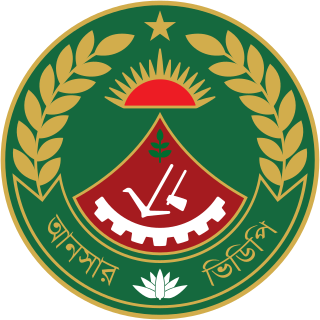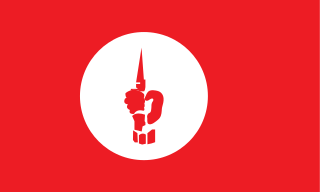History
In April 1952, a regional conference was held in Dhaka to address the challenges and issues posed by the bengali language movement where the decision was made to form a united student organization focusing on unity among all students, irrespective of nationality, religion, and caste. The decision aimed at fostering a collective consciousness with an anti-communal, democratic, anti-imperialist, and progressive political awareness. As a result, on April 26, 1952, the East Pakistan Students' Union was established in Dhaka based on the principles of unity, education, peace, and progress. [6] [11] [15]
The founding leaders of this organization were Kazi Anwarul Azim and Syed Abdus Sattar. Later, in December 1952, at the first conference, Mohammad Sultan was elected as the president, and Mohammad Elias as the general secretary. It was during this conference that the organization's declaration and constitution were announced. [6] [16]
Students' Union in the Liberation War
In February 1971, in an emergency council of the East Pakistan Students' Union, 14 demands were presented regarding democracy. It stated, "The original five language-speaking nations in Pakistan, to separate them from the Federation of Pakistan and establish an independent sovereign state with complete autonomy rights and self-determination." [17] [18]
In February 1971, during the tenth congress of the International Union of Students held in Europe, specifically in the then Czechoslovakia (present-day Slovakia, with its capital in Bratislava), representatives of the Students' Union from Bangladesh presented the just demands and struggles of the people of Bangladesh. This significant event had the participation of student representatives from over a hundred countries globally. [19]
On March 1, 1971, in response to the cancellation of the parliamentary session, the Students' Union organized a protest rally near Baitul Mukarram National Mosque and a nationwide strike on March 2. From the beginning of March, student gatherings were organized daily at the Central Shaheed Minar, where the ongoing events and political circumstances were briefed. Following the historic speech on March 7, Students' Union started their preparations for a prolonged struggle for the liberation of East Bengal. At the University of Dhaka's central field, Students' Union initiated military drills and weapons training, including handling dummy rifles, starting each morning. Female activists of the organization also participated in this training. Separate brigades were formed in the names of the martyrs and revolutionaries, each taking political responsibilities alongside receiving military training, including guerrilla warfare. [20] [21]
Furthermore, the Students' Union, from its side, conducted extensive political campaigns in districts and primary branches. They organized the Mukti Bahini in rural areas. In the villages, they instigated movements among farmers, and under the coordination of the Mukti Bahini, regular parade programs were conducted. On the night of March 25, 1971, leaders of the Dhaka UniversityUnit of Students' Union, including Aajim and Shushil, along with several others, sacrificed their lives in the gunfire of the Pakistani forces. [22] [23]
In May 6, 1971, a press conference was held in Delhi by the Students' Union regarding the Bengali Liberation War. The conference highlighted the overall situation of the genocide and the resistance struggle, creating widespread awareness internationally. After the commencement of the Liberation War, this was the first kind of press conference in favor of Bangladesh, where detailed descriptions of the atrocities and genocide by the Pakistani military were provided. [19]
On May 10, 1971, the International Union of Students (IUS) and the World Federation of Democratic Youth (WFDY), along with other international student and youth organizations from all countries, sent letters urging support and cooperation for Bangladesh's independence and the Liberation War. Subsequently, student and youth organizations worldwide swiftly started expressing support for Bangladesh's independence and the Liberation War, initiating widespread solidarity. [19] [24]
In May, as part of the Students' Union's initiative, a special guerrilla force was formed in collaboration with the NAP-Communist party to manage and conduct the war. On May 28, near Salonibari, Assam, training commenced. After the training, under the leadership of the Operation Planning Committee, the induction of guerrillas within the country, along with guerrilla operations and military coordination, was initiated. [23] [25]
By the end of September, this special force was engaged in small-scale operations. The number of operations increased in October and November. Successful campaigns were conducted one after another in areas such as Raipur, Monohardi, Shibpur, Comilla, Noakhali, Chittagong, and greater Barisal. On November 11, a fierce battle took place between the guerrilla force and the Pakistani forces in the bordering Betia of Cumilla. In this battle, 9 guerrilla fighters, including Students' Union leader Nizamuddin Azad, Sirajul Monir, and Shahidullah Saud, became martyrs. The actions of the guerrilla force showcase the heroic role played by the Students' Union warriors. [26] [27] [28]













